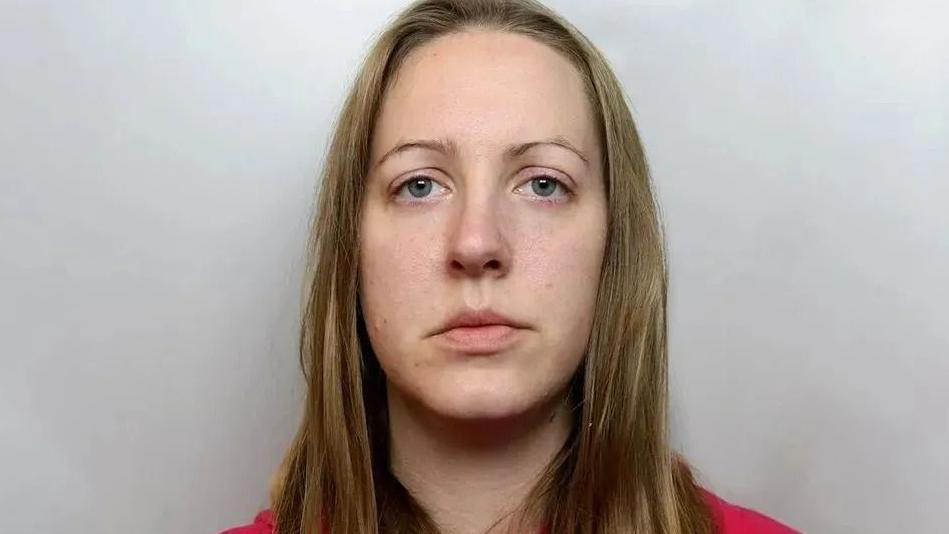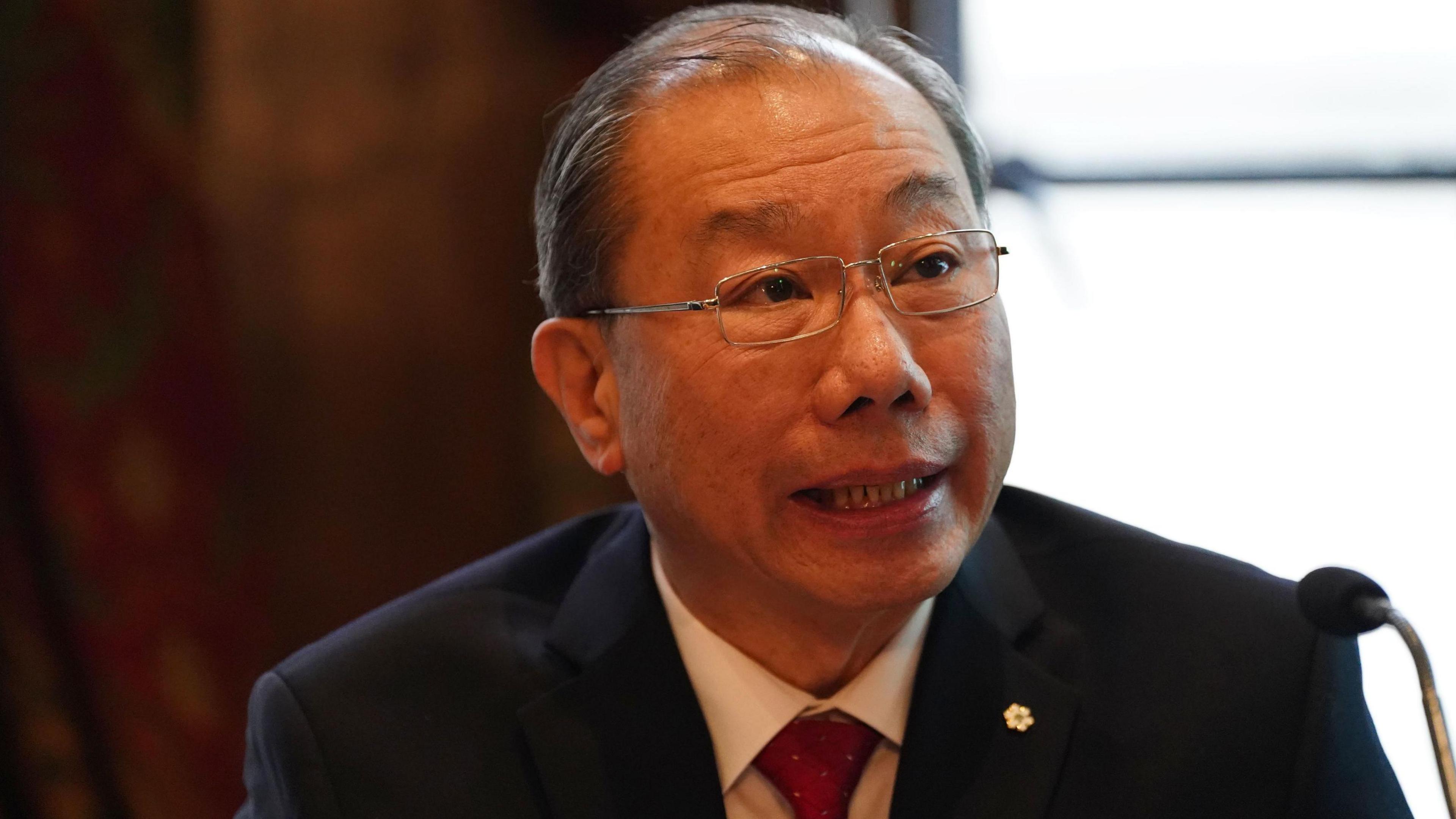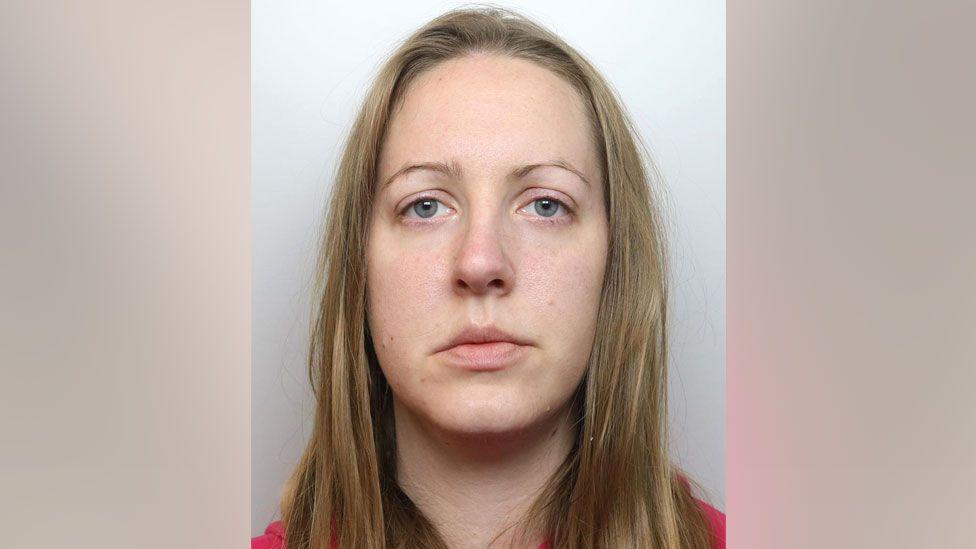Letby did not murder babies, medical experts claim

A team of medical experts have outlined what they say is "significant new evidence" in Lucy Letby's case
- Published
Child killer Lucy Letby did not murder any babies, a panel of international medical experts reviewing evidence in her case has claimed.
Chairman Dr Shoo Lee told a press conference "in all cases death or injury were due to natural causes or just bad medical care".
Letby, who is serving 15 whole life sentences for murdering seven babies and attempting to murder seven others between 2015 and 2016, has already lost two bids to appeal against her convictions.
The panel's findings are likely to form part of an application which has been made by her lawyers to the Criminal Cases Review Commission (CCRC) for her case to be investigated as a potential miscarriage of justice.

Retired medic Dr Shoo Lee, during a press conference to announce "new medical evidence" regarding the safety of the convictions of Lucy Letby
The lengthy and medically technical press conference was organised by Letby's legal team who had said the panel would present "significant new medical evidence".
Dr Lee, a Canadian neonatal care expert, said there were alternative explanations for each of Letby's convictions for murder or attempted murder.
He said he became involved in the case after learning that an academic paper he co-authored on air embolism, one of the methods Letby was said to have used to attack babies, had formed part of the prosecution case in her trial.
Dr Lee said the 14 experts, including medical professionals from Canada, the US, Japan, Germany, Sweden and the UK, had looked at 17 cases at the heart of Letby's prosecution and had compiled an "impartial evidence-based report".
The report presented at the conference was a summary of the panel's findings, and the full report would be submitted to Letby's legal team, Dr Lee said.
File on 4 Investigates: Letby – The Killer Questions
BBC File on 4 examines some of the most contentious statistical, scientific and medical evidence in the Lucy Letby trial
Available now on BBC Sounds
Dr Lee provided what he said were highly detailed grounds baby-by-baby for concluding that none of the murders occurred.
He added: "We did not find any murders. In all cases, death or injury were due to natural causes or just bad medical care."
"Lucy was charged with seven murders and seven attempted murders", he said.
"In our opinion, the medical opinion, the medical evidence doesn't support murder in any of these babies.
"Our full report will go to Lucy's barrister later this month, and then it'll be up to him and the courts to decide what next to do."
During Letby's trial, the prosecution referred to the 1989 paper by Dr Lee that looked at cases of air embolus, referring to injuries caused when air is injected into a baby's arteries or veins after staff at the Countess of Chester reported skin discoloration on some of the babies.
In the cases Dr Lee analysed in his paper, those injuries had happened accidentally.
The prosecution argued that one of the methods Letby used to injure or kill babies was to inject air into their veins and used Dr Lee's paper to back that claim.
In the paper, Dr Lee described a distinct discoloration on the babies' skin in 10% of cases.
'Scrutinised'
However, at the press conference Dr Lee said in all of the cases in his paper air was injected into the babies' arteries, not their veins.
He said that the skin discolouration described in the paper was not possible when air was injected into the veins.
Dr Lee said he had recently updated his academic paper and found no cases of skin discolouration linked to air embolism by the venous system.
He prefaced his remarks by saying that the thoughts of each panel member were with the families of the babies who had died.
Former neonatal nurse Letby, now 35, lost two bids to challenge her convictions at the Court of Appeal last year.
The prosecution's medical case was scrutinised by the Court of Appeal in May last year and found to be safe - and the judges noted Letby herself did not present any experts at her trial offering an alternative view.
Dr Lee had offered to give evidence to the Court of Appeal as part of Letby's application for permission to appeal, but three senior judges said his conclusions did not undermine her convictions.
The judges concluded there had been no prosecution expert evidence diagnosing air embolus solely on the basis of skin discolouration.
Earlier, the CCRC said Letby's lawyers had applied to the commission to investigate her case as a potential miscarriage of justice.
The body said it would now assess the application and determine whether there was new evidence which presented a reasonable chance of a conviction being overturned.
A CCRC spokesperson said: "We are aware that there has been a great deal of speculation and commentary surrounding Lucy Letby's case, much of it from parties with only a partial view of the evidence.
"We ask that everyone remembers the families affected by events at the Countess of Chester Hospital between June 2015 and June 2016."
Mark McDonald, Letby's barrister, said that because her previous legal team had not called a medical expert at her trial, the information presented was "new, fresh evidence".
He said the nurse was convicted because of the medical evidence, and if that was wrong any circumstantial evidence would "fall away".
"The most important thing, the reason why Lucy Letby was convicted, was because of the medical evidence that was presented to the jury that today has been demolished," he said.
Veteran MP Sir David Davis, who has been assisting Letby's legal team, described her convictions as "one of the major injustices of modern times".
Related topics
- Published1 October 2024

- Published18 August 2023
